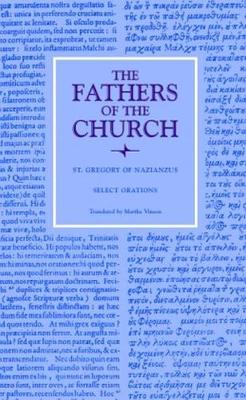Fathers of the Church
6 primary works • 7 total works
Book 22
Book 26
Book 42
Book 44
Book 65
Book 75
Up until now, Gregory has been known primarily for his contributions as a theologian, indifferent to the social and political concerns that consumed his friend Basil. This view will change. It has been due in large measure to the interests and prejudices of the nineteenth-century editors who excluded the sermons translated here from the Select Library of Nicene and Post-Nicene Fathers of the Church. This new translation will help the English-speaking reader appreciate just how deeply Gregory was engaged in the social and political issues of his day.
Exemplifying the perfect synthesis of classical and Christian paideia, these homilies will be required reading for anyone interested in late antiquity. The introduction and notes accompanying the translation will assist both the specialist and the general reader as they seek to navigate the complex environment in which Gregory lived and worked.

